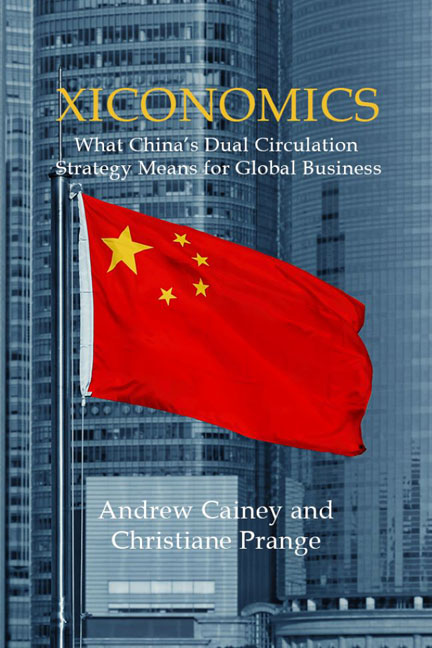6 - What role will China play in the world of external circulation?
Published online by Cambridge University Press: 23 January 2024
Summary
Beijing 2015: Li Xiaolin, chair of the Chinese People's Association for Friendship with Foreign Countries, declares that Andorra is a particularly valued partner of China. Andorra La Vella 2017: Andorra Telecom announces that it will work exclusively with Huawei to upgrade its high-speed internet access and to provide public Wi-Fi access across Andorra's capital. In 2019 China and Andorra celebrate 25 years of bilateral relations. Li's mention of Andorra, with a population of 77,000, was to make a point. China takes an interest and sees opportunity in every corner of the world. In 2017 Xi Jinping announced to the 19th Party Congress that China was ready to enter the centre stage of global affairs.
In the economic sphere, China is now the leading trading partner of 120 countries – more than any other country. China led the world as a source of outbound foreign direct investment in 2020, even excluding FDI flows out of Hong Kong. Although China's recent arrival to the world of outbound investment means that its total stock of overseas investments lags behind the United States, it already ranks at the level of Japan, Germany and the United Kingdom.
Over the past 20 years multinationals have seen China's economic presence in the rest of the world grow rapidly. First, imports from China offered competition in markets around the world as well as providing new sourcing opportunities for foreign companies themselves. Then, at the exhortation of Zhu Rongji in the 1990s, Chinese companies started to “go out” themselves, to establish operations overseas, invest and make acquisitions. From 2005 to 2017 acquisition activity intensified as Chinese companies bought foreign companies, so as to secure access to resources and advanced technologies or simply to capitalize on business opportunities. From 2013 onwards China's Belt and Road Initiative heralded a drive to increase infrastructure links and trade, supported by extensive lending from Chinese state-owned banks.
Just as many Western companies have struggled to succeed in China, however, so Chinese companies have often struggled in foreign markets. In 2020 Zhou Lihong, chairwoman of the China Chamber of Commerce to the European Union, said that the Chinese business community would like to see less “red tape” and fewer regulatory barriers in doing business in the European Union.
- Type
- Chapter
- Information
- XiconomicsWhat China's Dual Circulation Strategy Means for Global Business, pp. 81 - 96Publisher: Agenda PublishingPrint publication year: 2023



